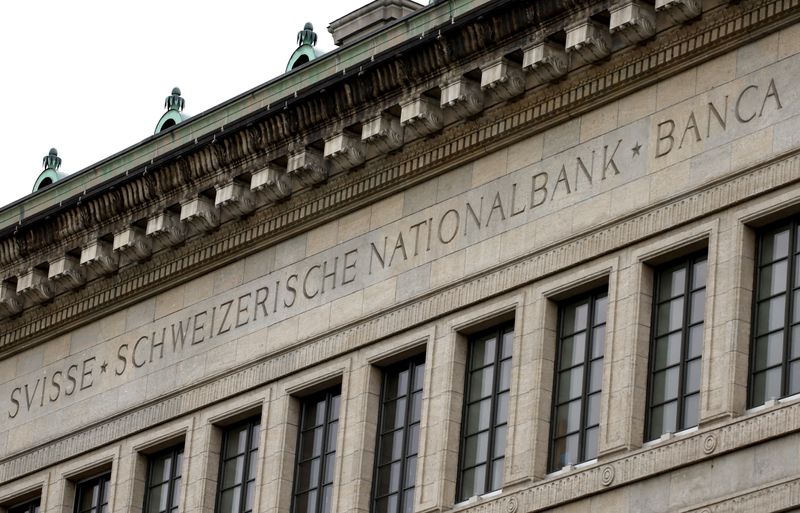ZURICH (Reuters) – Swiss inflation fell to its lowest level in more than three years in October, government data showed on Friday, pointing towards more interest rate cuts by the Swiss National Bank this year and into 2025.
Swiss consumer prices rose by 0.6% in October compared with the same month a year earlier, data from the Federal Statistics Office showed, lower than the 0.8% forecast in a Reuters poll.
The increase in prices was the lowest level since July 2021, and reflected cheaper food, clothing and household goods.
Month-on-month prices fell by 0.1%, the FSO said.
The Swiss franc fell to a five-week low following the data, in anticipation the SNB will cut borrowing costs to prevent inflation undershooting its 0-2% target range.
The SNB declined to comment.
Markets currently give a 72% probability the central bank will cut rates from 1% at its next meeting on Dec. 12 to 0.75%, and a 68% probability it will cut them again next March to 0.5%.
“The situation with falling inflation is becoming uncomfortable for the SNB, which will certainly cut rates by 25 basis points in December, although I wouldn’t be surprised if they cut by 50 basis points,” said Karsten Junius, an economist at J.Safra Sarasin.
“But I think it will prefer to keep something in reserve and cut rates again by 25 basis points in March and another 25 basis points in June to get to 25 basis points,” added Junius, who anticipated the SNB would also step up currency interventions in early 2025.
GianLuigi Mandruzzato, an economist at EFG Bank, said October’s inflation was much lower than the latest SNB forecast for inflation of 1% in the fourth quarter.
“The data also raises the chances that the SNB will consider a larger rate cut of 0.5% instead of the standard 0.25% cuts implemented since March as the risk of negative inflation in 2025, if only temporarily, has clearly risen,” he said.

